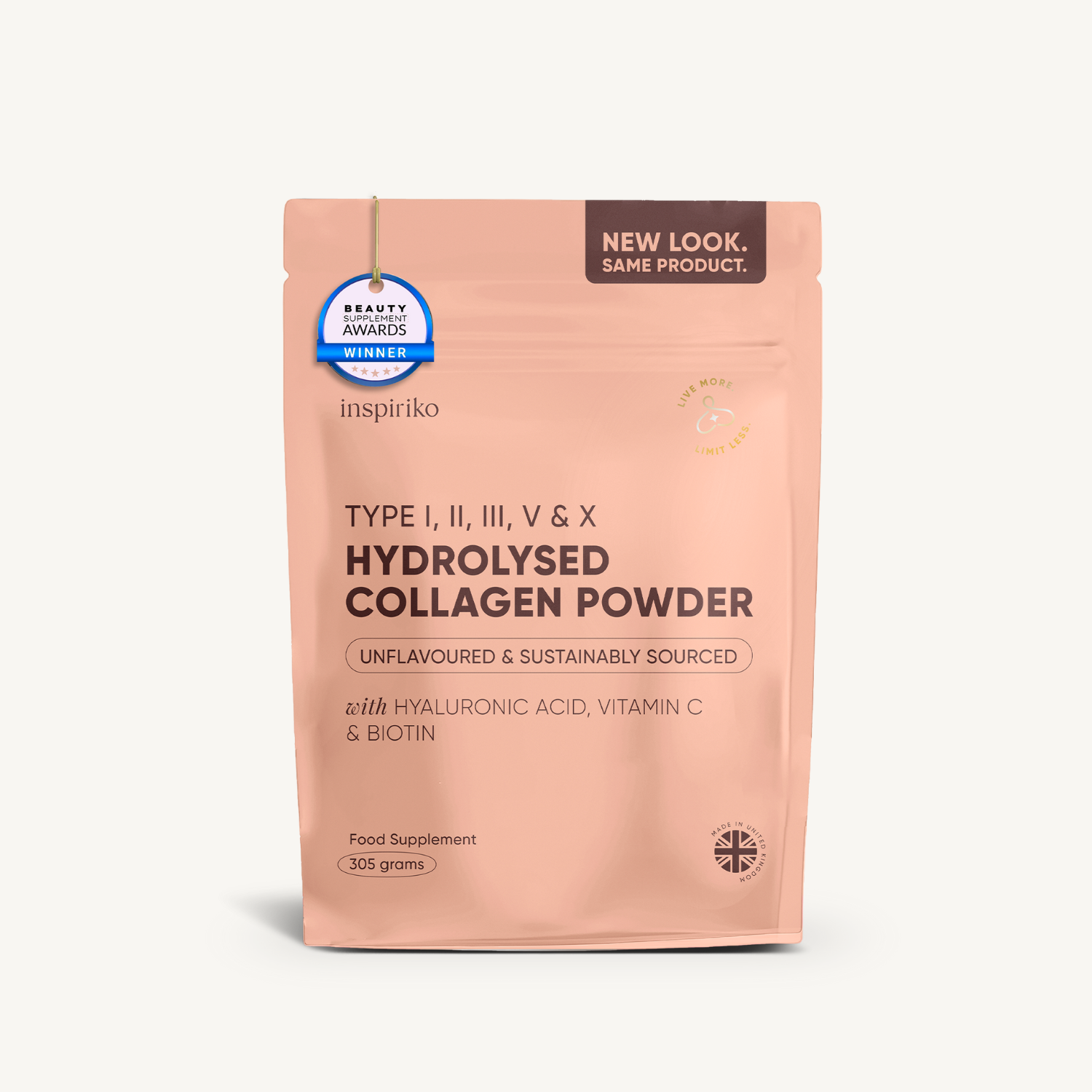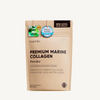Life in your 40s and beyond is often about embracing new opportunities, nurturing your well-being, and staying active. However, for many women, joint discomfort becomes an uninvited guest. Whether it’s stiffness when getting out of bed or an ache after a long walk, joint issues can impact your quality of life. It’s no surprise that as we age, our joints feel the strain of years of activity, hormonal changes, and natural wear and tear. The good news? You don’t have to accept joint pain as just a part of growing older.
Taking proactive steps to support joint health can help you maintain mobility, reduce discomfort, and continue enjoying your favourite activities. Joint supplements, particularly those formulated for women over 40, can be a valuable addition to your wellness routine. These supplements contain ingredients that nourish cartilage, reduce inflammation, and support bone health. In this article, we’ll explore why joint health becomes more crucial after 40, how joint supplements can make a difference, and what to look for when choosing the right one.
Why Joint Health Matters After 40
Joint health becomes especially important as we age due to a combination of hormonal changes, lifestyle factors, and natural wear on our bones and cartilage. One of the primary factors influencing joint health after 40 is the decline in oestrogen levels, particularly during perimenopause and menopause.
The Role of Oestrogen in Joint Health
Oestrogen plays a protective role in maintaining joint and bone health. A 2019 study (1) demonstrated that estrogen deficiency resulted in the resorption of subchondral bone and the degeneration of articular cartilage.
This study confirmed that estrogen has a protective effect on both cartilage and subchondral bone. When estrogen levels were reduced, the subchondral bone developed osteoporosis, but after estrogen supplementation, the osteoporosis was alleviated. This underscores the importance of maintaining hormone balance to support joint integrity as we age.
The Mind-Body Connection: Joint Pain and Mental Health
Chronic joint pain doesn’t just affect your physical well-being; it can also impact your mental health. According to a recent report (2), chronic pain and mental health issues often coexist, with 35% to 45% of individuals living with chronic pain also experiencing depression. The relationship is complex and reciprocal—chronic pain can lead to mood disturbances, while mental health issues can intensify the perception of pain.
Functional imaging studies suggest that the biological mechanisms of chronic pain and mental health disorders are closely linked. This highlights the importance of addressing joint pain proactively—not only to protect physical function but also to support emotional well-being.

How Joint Supplements Can Help
Maintaining joint health after 40 can feel challenging, but the right supplements can make a noticeable difference. Incorporating key ingredients known for their anti-inflammatory, cartilage-supporting, and bone-strengthening properties can help you stay active and pain-free. Let’s break down how joint supplements work to support your body.
Reducing Inflammation
Inflammation is a major culprit behind joint pain, especially as we age. Ingredients like turmeric and omega-3 fatty acids are known for their potent anti-inflammatory effects. Turmeric, rich in curcumin, helps reduce swelling and discomfort, making it a popular choice for joint support.
Omega-3 fatty acids are equally impressive when it comes to calming inflammation. A 2024 study (3) found that omega-3 supplementation significantly decreased TNF-α, a key inflammatory marker, while boosting total antioxidant capacity in patients with Type 2 diabetes. This demonstrates that omega-3s not only reduce inflammation but also help protect cells from oxidative stress.

Supporting Cartilage Health
Our joints rely on cartilage to absorb shock and allow smooth movement, but ageing and hormonal changes can wear it down. Supplements containing glucosamine and chondroitin are well-regarded for maintaining cartilage structure.
These compounds work by promoting the production of essential components within cartilage, such as aggrecan and collagen type II. Research shows that glucosamine stimulates the formation of these structural elements in chondrocyte cultures (4), helping preserve cartilage integrity. Regular use can therefore support joint cushioning and reduce discomfort.
Bone Strength and Density
Joint health isn’t just about cartilage—it’s also about keeping bones strong and resilient. Ingredients like calcium, magnesium, and vitamin D3 are crucial here. Calcium helps build and maintain bone mass, while magnesium aids in mineral absorption, and vitamin D3 ensures calcium is properly utilised by the body.
A recent study (5) found that daily supplementation with calcium (500 mg) and vitamin D3 (700 IU) led to significant improvements in bone mineral density (BMD) at the femoral neck, spine, and total body sites compared to a placebo group. The study also observed a reduced incidence of fractures, highlighting the protective role of these nutrients in maintaining bone strength.
Promoting Flexibility and Mobility
Keeping your joints moving smoothly means maintaining adequate lubrication. Hyaluronic acid plays a key role here by retaining moisture in joint tissues, acting as a natural lubricant. This can help reduce stiffness and support a wider range of motion, allowing you to stay active with less discomfort.
Inspiring Confidence and Well-being
Chronic joint pain doesn’t just affect your body—it can also take a toll on your mental well-being. The ability to move without pain fosters confidence and keeps you engaged in the activities you love, from hiking to yoga or simply playing with your grandchildren. Reducing joint pain means more than physical relief; it’s about sustaining a positive, active lifestyle well into your later years.

What to Look for in a Joint Supplement
Choosing the right joint supplement can feel overwhelming with so many options on the market. To make an informed decision, focus on a few key factors: ingredient quality, bioavailability, and targeted benefits.
Clinically Proven Ingredients
Look for joint supplements containing well-researched ingredients such as:
-
Glucosamine and Chondroitin: These support cartilage structure and joint flexibility.
-
Turmeric and Omega-3s: Known for their anti-inflammatory properties.
-
Hyaluronic Acid: Enhances joint lubrication for smoother movement.
-
Calcium, Magnesium, and Vitamin D3: Support bone strength and density.
At Inspiriko, we prioritise high-quality, clinically backed ingredients in every supplement. For instance, our Chelated Magnesium Glycinate is formulated to maximise bioavailability, helping to support muscle relaxation and reduce cramps without causing digestive discomfort. This is especially important for women over 40, as magnesium also aids in maintaining strong bones and balanced energy levels.
Superior Absorption and Quality
Not all supplements are created equal. Some forms of magnesium, for example, are less absorbable, leading to minimal benefits and potential digestive issues. Our Smarter Magnesium Complex combines chelated magnesium with zinc, vitamin B6, and vitamin D3 to enhance absorption and efficacy. This formula not only supports muscle and joint health but also aids in regulating hormones and boosting energy levels.
When choosing any supplement, look for:
-
Bioavailable Forms: Ingredients that your body can easily absorb and utilise.
-
Certified Quality: Products that are third-party tested for purity and potency.
-
Minimal Additives: Avoid fillers, preservatives, and synthetic ingredients.
Natural and Science-Backed Formulations
The best joint supplements are rooted in both traditional wisdom and modern science. Inspiriko takes this approach seriously by combining time-honoured herbal ingredients with clinically proven nutrients, ensuring that each product is effective and safe for long-term use.

Holistic Tips to Boost Joint Health
While supplements are essential for supporting joint health, adopting a holistic approach can further enhance your mobility and comfort.
-
Stay Active: Engage in low-impact exercises like swimming, cycling, or yoga to keep joints flexible and muscles strong.
-
Eat an Anti-Inflammatory Diet: Incorporate foods rich in omega-3s (like salmon and flaxseed), antioxidants (like berries and leafy greens), and healthy fats (like olive oil) to reduce inflammation.
-
Maintain a Healthy Weight: Reducing excess weight lessens the strain on your joints, particularly your knees and hips.
-
Hydrate: Staying hydrated helps maintain the elasticity and lubrication of joint tissues.
-
Manage Stress: Chronic stress can increase inflammation, so practice relaxation techniques like deep breathing or meditation.
Taking care of your joints is a vital part of maintaining a vibrant, active lifestyle after 40. By combining targeted joint supplements with a balanced lifestyle, you can support your mobility, reduce discomfort, and continue doing what you love with confidence.
FAQs
How long does it take to see results from joint supplements?
Can I take joint supplements alongside menopause support products?
Are there any side effects to using joint supplements?
Do joint supplements replace exercise?
Can I take joint supplements if I have osteoarthritis?
Related Products
References for the blog
-
Xu, X., Li, X., Liang, Y., Ou, Y., Huang, J., Xiong, J., Duan, L. and Wang, D., 2019. Estrogen Modulates Cartilage and Subchondral Bone Remodeling in an Ovariectomized Rat Model of Postmenopausal Osteoarthritis. Medical Science Monitor, 25, pp.3146-3153. doi:10.12659/MSM.916254.
-
American Psychiatric Association, 2024. Chronic Pain and Mental Health: Interconnected. [online]
Available at: https://www.psychiatry.org/news-room/apa-blogs/chronic-pain-and-mental-health-interconnected [Accessed May 2025]. -
Muzammil, K., Khaleel, A.Q., Merza, M.S., Kyada, A., Ariffin, I.A., Verma, S., Kaur, H. and Hasaanzadeh, S., 2024. The effects of ω-3 fatty acids on inflammatory and oxidative stress markers in patients with Type 2 diabetes mellitus: A systematic review and meta-analysis of controlled trials.
Prostaglandins and Other Lipid Mediators, 175, p.106887. doi:10.1016/j.prostaglandins.2024.106887. -
Jerosch, J., 2011. Effects of Glucosamine and Chondroitin Sulfate on Cartilage Metabolism in OA: Outlook on Other Nutrient Partners Especially Omega-3 Fatty Acids.
International Journal of Rheumatology, 2011, p.969012. doi:10.1155/2011/969012. -
Dawson-Hughes, B., Harris, S.S., Krall, E.A. and Dallal, G.E., 1997. Effect of calcium and vitamin D supplementation on bone density in men and women 65 years of age or older.
New England Journal of Medicine, 337(10), pp.670-676. doi:10.1056/NEJM199709043371003.






